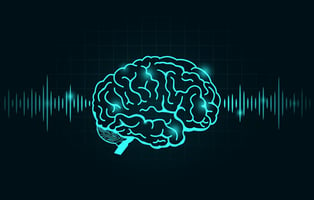Black Youth Experienced Increased Racial Discrimination Online in 2020, Study Finds

Between March and November 2020, Black youth experienced increased online racial discrimination and reported poorer mental health immediately after, according to a study published this week in the Journal of the American Academy of Child & Adolescent Psychiatry.
“In 2020, the killings of Breonna Taylor, George Floyd, and other Black Americans at the hands of White civilians and law enforcement sparked an uprising against racial injustice that was met with fierce opposition from white nationalists and domestic terror groups in the United States,” wrote Juan Del Toro, Ph.D., and Ming-Te Wang, Ed.D., of the University of Pittsburgh. Those groups became more prominent in online spaces as youth simultaneously relied on those online spaces to connect with peers during the COVID-19 pandemic.
Del Toro and Wang recruited 602 self-identified Black and White adolescents (58% Black, 42% White) between the ages of 12 and 18. For two weeks in March, April, May, and October 2020, the participants completed daily surveys to determine if they had experienced online racial discrimination and to assess their mental health symptoms. Rates of participation varied from month to month, with 44% participating in the March surveys and 57% participating in the October surveys. The researchers collected a total of 18,454 daily assessments.
The authors included a single item from the Online Victimization Scale in the surveys to determine if the participants experienced online racial discrimination (Participants were asked: “Over the past 24 hours, did anyone say or post mean or rude things about you because of your race or ethnic group online?”). Participants were also asked about symptoms of their depression, anxiety, stress, and exhaustion/tiredness through the Profile of Mood States Questionnaire and a single item from the Daily Stress Scale.
Across all four survey periods, 45% of Black youth reported at least one instance of online racial discrimination. On average, Black youth experienced two incidents of online racial discrimination during the study period. The percentage of participants experiencing online racial discrimination increased from 8% during the first survey period to 22% during the final survey period, and the authors noted that this increase was not solely explained by increased time spent online. In contrast, reporting of online racial discrimination was low in White youth, ranging from 8% in the first survey to 11% in the last.
Black adolescents who experienced online racial discrimination also reported increased depressive symptoms, anxiety, and stress both on the day they experienced the discrimination and the next day, relative to days when they did not experience discrimination. No discernible effect of online racial discrimination emerged for White youth, the authors noted.
“[C]hronic exposure to online settings may exacerbate the impact of racial discrimination on youth’s mental health. Importantly, these daily effects may accrue and over time contribute to clinically significant levels of impairment,” Del Toro and Wang wrote. “To prepare racially minoritized youth and their families to cope with these adverse experiences, psychiatrists and clinicians should recognize online spaces as developmental contexts with immediate consequences for youth’s mental health.”
Health care professionals should be trained on culturally sensitive assessments and effective communication skills to use when patients’ racial trauma arises in clinical settings, the authors added. “[C]onversations about racial discrimination would be incomplete without discussing practical approaches to cope with race-related stressors in daily life.”
For related information, see the Psychiatric News article “Psychiatrists Demand Action on Racism.”
(Image: iStock/SDI Productions)
Don't miss out! To learn about newly posted articles in Psychiatric News, please sign up here.






